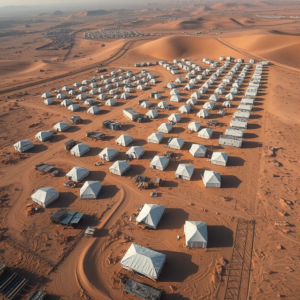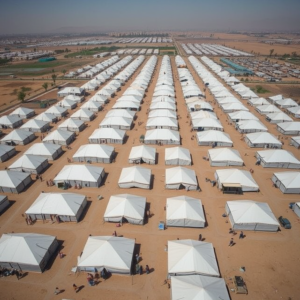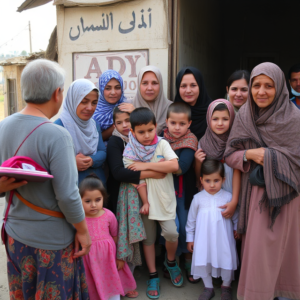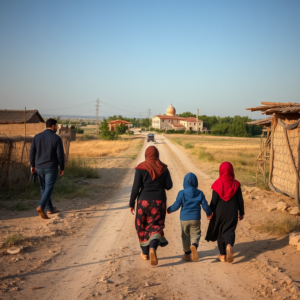Syria’s al-Hol Camp Prepares for First Repatriation of Detainees
In a significant development, authorities in northeast Syria are preparing for the first-ever repatriation of detainees from the al-Hol camp. This initiative follows the fall of former President Bashar al-Assad’s regime in December 2023, leading to a shift in the region’s political landscape.

Background of al-Hol Camp
Al-Hol camp, located in northeastern Syria, has been a focal point for displaced individuals, particularly women and children associated with the Islamic State (ISIS). Housing approximately 40,000 residents, the camp has faced challenges related to security and humanitarian conditions.

Details of the Repatriation Plan
The upcoming repatriation involves 66 families, primarily women and children, who are set to return to areas under the control of the Syrian government. This marks a significant shift in the management of detainees, as the previous regime’s policies had limited repatriation efforts due to concerns over human rights and security.

Implications for Regional Stability
The repatriation is expected to have several implications:
- Security Concerns: The return of individuals associated with ISIS raises potential security risks, including the possibility of re-engagement in extremist activities.
- Humanitarian Considerations: Ensuring the safe and dignified return of detainees, along with providing necessary support for reintegration, is crucial to prevent further radicalization.
- Political Dynamics: The repatriation process may influence the political relationships between the Syrian government and the Kurdish-led Syrian Democratic Forces (SDF), who have managed the camp.
Conclusion
The planned repatriation from al-Hol camp represents a pivotal moment in Syria’s post-conflict recovery. While it offers an opportunity for individuals to return to their communities, it also presents challenges that require careful management to ensure regional stability and the well-being of all involved.

